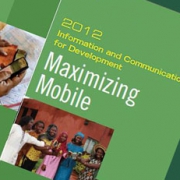When Drumbeats Change, Dancing Steps Must Change!
An interesting principle being used by smallholder farmers in Nigeria (particularly female farmers) to fight the global climate change within their own means is a Hausa proverb, “In Kidi ya Chanza”, which means “when the drumbeats change, the dancers have to change their steps.”
“Change In Drum Beats” – Climate Change
While farming remains a predominant occupation for the rural people of Northern Nigeria, the increasing effects of climate change is being felt in almost all areas of their farming activities. The land is becoming drier due to shorter and unpredictable rainfalls; increasing flooding resulting in crop destruction when the rains finally come; the quality and quantity of forage of the livestock is being affected; and the changes in temperature is directly affecting both crops and livestock. At the same time, the strength of their local knowledge, innovations, skills, experiences, observations and insights that used to help them overcome these challenges in the absence of scientific resources is becoming archaic, due to the same effect of climate change.
“Change In Dancing” – Information Communication Technologies
Over time, the change in ‘drum beat’ has been noticed by the local people. With support from the Climate Change Adaptation in Africa Program; the African Radio Drama Association (ARDA) in partnership with Farm Radio International and the University of Guelph, initiated a project that uses “edutainment” approach of combining entertainment with educational messages for climate change. The project has developed this special “In Kidi ya Chanza” Radio Drama Program aimed at raising awareness and providing information to smallholder farmers in northern Nigeria about climate change adaptation. Currently, there are a number episodes of drama with specific focuses that are airing weekly on several radio stations and broadcast to an estimated 20 million listeners in four northern Nigerian states targeted by the project.
The drama involves music and storytelling, which can both entertain and educate. They imitate real life and can be a vehicle for demonstrating actions to highlight comparisons and consequences. Through multi-dimensional characters, drama can credibly portray models of responsibility, community leadership, and self-efficacy, and at the same time present new social norms to drive behavior change. Episodes also encourage household discussions of otherwise difficult topics, and encourage the audience to be part of the whole process of change without being bombarded with too many messages. The listener would usually empathize with the characters and would not feel talked down to, as useful information is given out by characters they grow to love in the course of the drama.
The impact of the program is huge with a recent study conducted by the University of Guelph showing that about 78% of respondents were familiar with the radio drama; 84% of female and 68% of male listeners stated the program increased their awareness of climate change adaptation; and the vast majority (92.8%) of respondents who gained awareness from the program reported that they took action.
In Nigeria and other parts of Africa, radio remains an important and trusted medium for the majorities of smallholder farmers who have easy access and regularly listen to programs. Apart from being affordable, radio is appropriate because it does not necessarily rely on electrical power to operate, making it highly accessible medium. Over 85% of Nigerians have access to a radio set, making radio an effective medium for the broadcast of this series of programs.








































